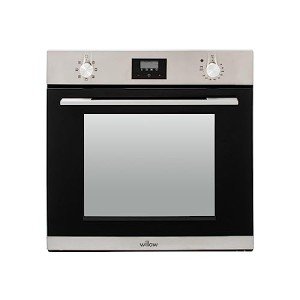Integrating Cooking: A Comprehensive Guide to Integrated Hobs and Ovens
In the modern kitchen, performance integrates effortlessly with design. An integrated hob and oven system represents this blend, providing both performance and aesthetic appeal. As home cooks seek ways to enhance their cooking spaces, comprehending the advantages and features of integrated hobs and ovens ends up being necessary. This post looks into the various elements of integrated cooking appliances, offering insights into their advantages, setup considerations, and upkeep suggestions.

What is an Integrated Hob and Oven?
An integrated hob and builtin oven setup describes the style wherein the cooking hob (the surface area on which pots and pans are positioned to prepare food) and the oven (the home appliance used to bake, roast, and broil) are developed to fit effortlessly into kitchen cabinet systems. This cohesive design not just conserves area but also boosts the visual harmony of the kitchen.
Secret Features of Integrated Hobs and Ovens
- Area Efficiency: These appliances are developed to fit within basic cabinets, optimizing kitchen space while enabling more storage choices.
- Stylish Appearance: Integrated models offer a sleek, modern-day look that can raise any kitchen’s aesthetic.
- Enhanced Functionality: Many integrated systems come with innovative features such as induction cooking, self-cleaning intergrated ovens, and clever technology compatibility.
- Better Usability: Placing the hob at a proper height and having the oven easily situated below can improve cooking ergonomics.
Advantages of Integrated Hobs and Ovens
The growing choice for integrated hobs and ovens arises from numerous associated benefits:
1. Space-Saving Design
- Integrated appliances get rid of the requirement for large standalone units.
- They permit more counter space, producing a functional workspace for cooking.
2. Visual Cohesion
- Integrated systems can be completed to match cabinets, supplying a sleek and unified appearance.
- The kitchen can keep a minimalist design, without visual mess.
3. Superior Functionality
- Features like touch controls, timers, and automated cooking programs can improve the cooking experience.
- Induction hobs can offer faster cooking times and more exact temperature level control compared to standard gas or electric integrated oven hobs.
4. Energy Efficiency
- Numerous modern integrated ovens feature improved insulation and energy-efficient features, minimizing energy intake.
- Induction hobs use energy straight in the pots and pans, causing less heat loss and faster cooking.
Setup Considerations
When thinking about an integrated hob and oven, integrated hob and oven a number of aspects should be assessed during setup.
1. Area Measurements
- Kitchens Layout: Ensure the dimensions of the available space accommodate both the hob and oven.
- Ventilation: Adequate ventilation is crucial to avoid getting too hot and guarantee effective operation, particularly with gas designs.
2. Electrical and Gas Connections
- Power Supply: Verify that the kitchen’s power supply fulfills the home appliance requirements (voltage, amperage).
- Gas Lines: For gas hobs, expert installation may be necessary to guarantee safety.
3. Personalization and Finishes
- Pick surfaces that match kitchen interiors, such as stainless-steel, glass, and even custom kitchen cabinetry to hide the appliances.
4. Ease of access
- Guarantee that both the hob and oven are quickly obtainable. An ergonomic setup will enhance the cooking experience and make it much safer.
Integrated Hob and Oven Models
| Model | Type | Secret Features | Cost Range |
|---|---|---|---|
| Bosch Series 4 HBG634BBR | Built-In | Wi-Fi connection, multiple cooking modes | ₤ 1,200 – ₤ 1,500 |
| Samsung NZ48K7570UG | Induction | Flex zone, clever innovation, touch controls | ₤ 1,500 – ₤ 2,000 |
| Miele H 6260 BP | Built-In | Self-cleaning, automated programs, smooth style | ₤ 2,500 – ₤ 3,500 |
| NEFF B57VR22N0 | Multifunction | Slide&& Hide door, advanced heat circulation | ₤ 2,000 – ₤ 2,500 |
Maintenance Tips
To take full advantage of the life and functionality of integrated hobs and ovens, appropriate upkeep is essential:
- Regular Cleaning: Clean the hob and oven routinely to avoid accumulation from spills and food residues. Use non-abrasive cleaners to secure surfaces.
- Check Seals and Gaskets: Check oven door seals to make sure efficient heating and prevent energy loss.
- Check for Damage: Regularly examine gas pipes, electrical cables, and connections for wear or damage. Immediate repair or replacement is crucial for security.
- Follow Manufacturer’s Guidelines: Adhere to the specific maintenance directions supplied by the maker for ideal performance.
FAQs
1. Can I set up an integrated hob and oven myself?
- While some house owners choose DIY installation, it is recommended to employ a professional, especially when gas connections or electrical wiring are included.
2. Are integrated hobs and ovens energy-efficient?
- Many contemporary integrated systems are developed with energy efficiency in mind, including thermal insulation and energy-saving modes.
3. What is the very best product for an integrated ovens uk hob and oven?
- Stainless steel is popular due to its sturdiness, ease of cleaning, and integrated hob and oven resistance to rust. However, glass ceramic and enamel-coated choices also provide aesthetic appeal.
4. How do I troubleshoot common problems with integrated hobs and ovens?
- Refer to the user manual for fixing standards. Fundamental issues like power failures or irregular cooking may frequently be fixed through simple adjustments or resets.
An integrated hob and oven system provides a mix of performance and design that lines up with modern-day kitchen designs. By comprehending the advantages, setup requirements, and upkeep suggestions connected with these appliances, homeowners can make educated choices that improve their cooking experiences. As kitchens progress into multifunctional areas, integrated cooking solutions will continue to acquire appeal, shaping the future of culinary areas.
